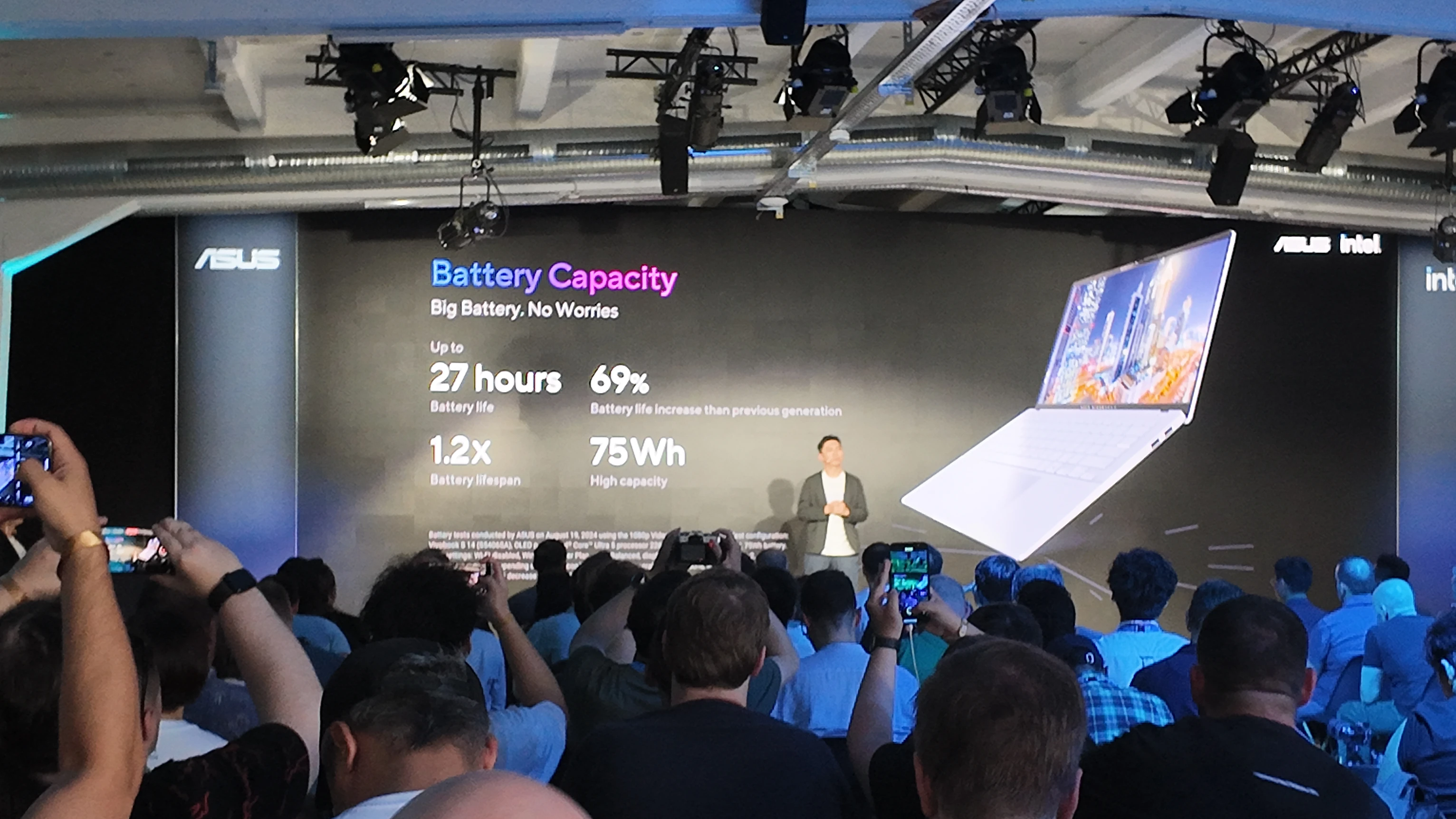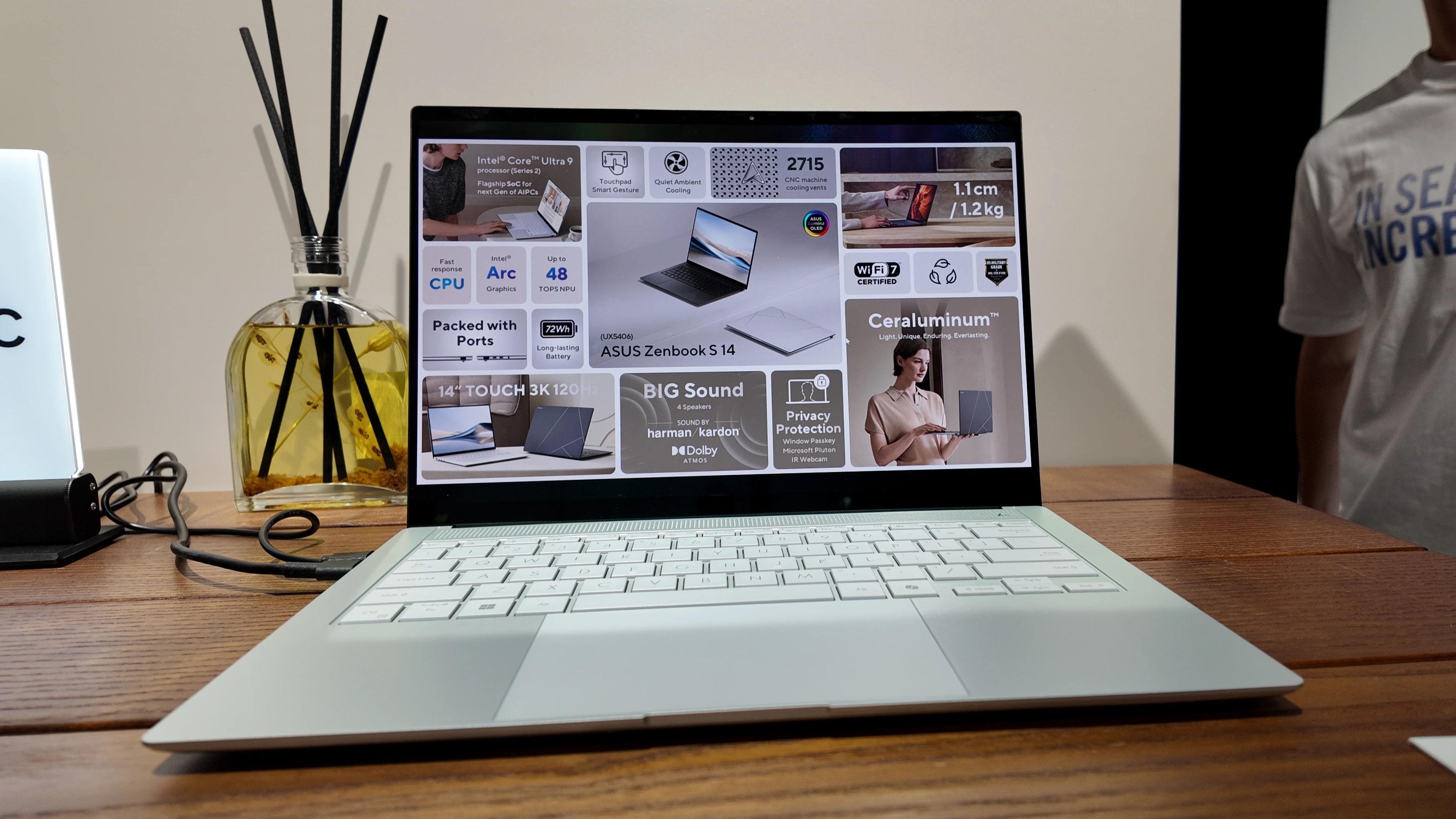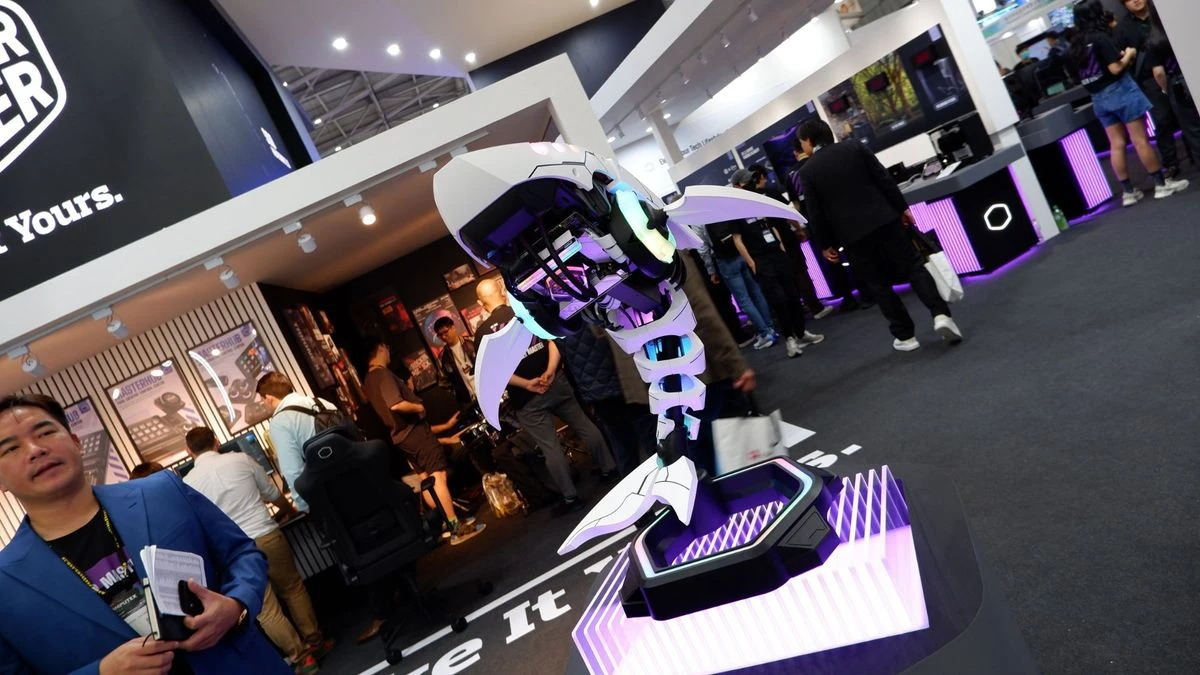These new Asus Lunar Lake Laptops with 27+ hour battery life prove that it's not only x86 vs. Arm when it comes power efficiency
Battery life is one of the main differences between office laptops and gaming laptops. This gap is growing after this latest batch thin and light laptops with Intel Lunar Lake Core Ultra 200V processors were introduced at an Asus IFA Event.
Take the Asus Vivobook S 14. It is one of the thinnest and lightest laptops from the company. For a gaming laptop enthusiast, it's not a standout, but for a new school or office laptop, you should take note of its OLED screen, metal chassis, 1.3 kg of weight, and 27-hour battery life.
Yeah, 27 hours. Or so says Asus.
The Zenbook S 14 also boasts lofty claims about its battery life. I personally prefer the sleeker design of this Zenbook over the Vivobook. The new ExpertBook P5 promises up to 28 hours video playback or 20 hours "office productivity", but that could mean anything from opening word documents every hour to frantically filling out spreadsheets.
All batteries must be at least 70 Whr in size.
Let's be a little more realistic. These are the best-case scenarios. They're still pretty convincing evidence of the power efficiency gains Intel has made with its latest Core Ultra200V, codename Lunar Lake chips.
Intel has said that it has focused on power efficiency throughout the development of Lunar Lake. Intel's Lunar Lake processors have been a success, thanks to TSMC's power-efficient process node. All of them have four E-cores, and four P-cores. They also come with a decent Xe2 graphics card.
Asus also announced new laptops powered by ARM at IFA. It's important to note that one is a good comparison. The Asus Vivobook S 15 has a 70 Whr Battery and a new Snapdragon X Plus Chip, which provides "19+ Hours" of battery life. It also comes with a 3K version, but a larger 15" version; and plenty of connectivity.
Asus' designs have a battery that is rated at 75 Whr, compared to 70 Whr for the larger Qualcomm-powered device. The Intel-based device does have a slight advantage in battery life, with 75 Whr compared to 70 Whr for the larger Qualcomm-powered devices.
We'll have to wait and see if these claims are backed up by independent testing. The method and execution of these battery tests can vary a lot. This gain for Intel puts it on a more even footing with Qualcomm. It also bodes well for the claims made repeatedly by Intel VP Robert Hallock, that "it isn't the instruction set architecture that dictates power." It's not just a simple x86 vs. ARM battle.
Intel must prove this point through action, not just words, if they want to keep up with the new competition from ARM laptops, which are largely powered Qualcomm's processors. These laptop designs do away with any x86 processors from AMD or Intel, and have been a major threat to Intel mobile's lucrative business.
These Asus laptops are a powerful rebuttal of any claims that ARM is inherently better. However, I have a strong sense that this battle over battery life is not yet over.






Comments